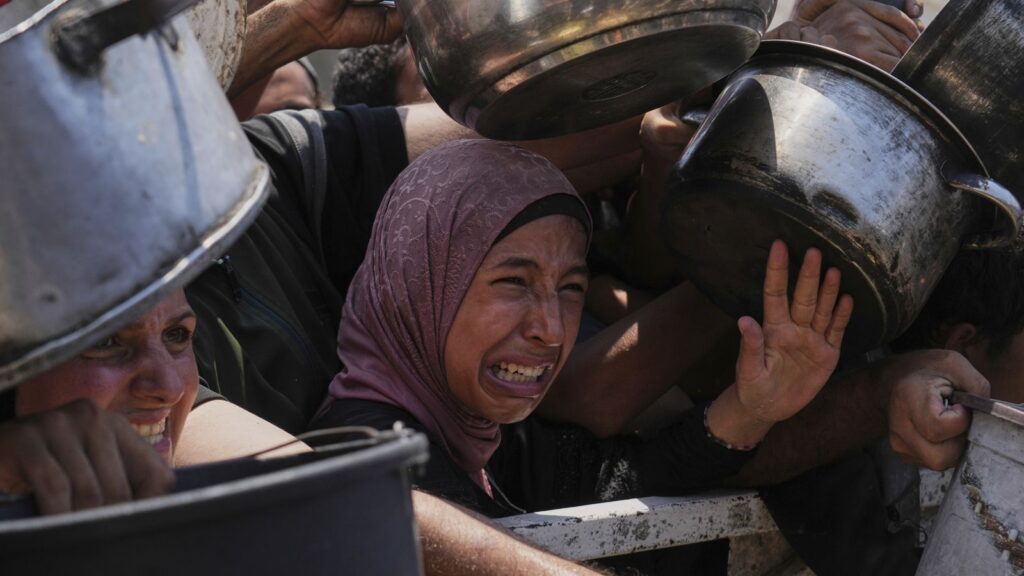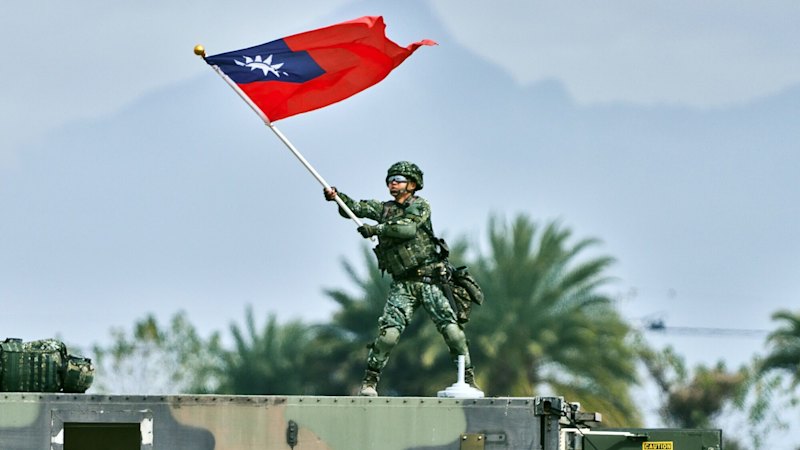
In Gaza City, the struggle for survival has reached a critical point as Palestinians grapple with severe food shortages. The blockade, enforced by Israel and backed by Western powers, has led to a humanitarian crisis reminiscent of some of history’s darkest periods. Reports of starvation and malnutrition are emerging daily, with the Gaza Health Ministry confirming over 150 starvation-related deaths, including 83 children.
Despite these alarming figures, Israeli Prime Minister Benjamin Netanyahu has publicly denied the existence of starvation in Gaza. This statement comes amidst a blockade that has restricted aid for five months, with Israeli officials attributing food shortages to alleged mismanagement by Hamas and the United Nations.
Historical Context and International Response
The current situation in Gaza is not an isolated incident but part of a long-standing conflict. Since October 2023, Israel’s military actions have resulted in over 60,000 reported deaths, a number that many believe is significantly underestimated. The international community, particularly countries like the United States, Germany, and the United Kingdom, has faced criticism for their continued military support to Israel, despite the humanitarian implications.
In an attempt to address growing global discontent, leaders from the UK, Canada, and France have expressed intentions to recognize a Palestinian state. However, critics argue that these gestures are superficial, pointing to ongoing arms shipments to Israel as evidence of insincerity.
Geopolitical Implications
Stephen Erlanger of The New York Times highlights the geopolitical stakes, noting that Israel risks becoming an international pariah. The support Israel receives from Western powers is deeply rooted in strategic interests, yet it is increasingly challenged by global public opinion.
“Israel risks becoming an international outcast and is increasingly isolated,” Erlanger wrote, reflecting the growing divide between government policies and public sentiment.
The Role of Imperialism and Zionism
The roots of the current crisis can be traced back to the historical alignment of Zionism with imperialist powers. Since its inception in the late 19th century, Zionism has sought alliances with powerful regimes to advance its goals of establishing a Jewish state. This alignment has often come at the expense of Palestinian rights and has been supported by various imperialist powers over the decades.
The establishment of Israel post-World War II, backed by Western powers and the Soviet Union, involved the displacement of Palestinians, known as the Nakba. This historical backdrop continues to fuel the conflict, as Israel serves as a strategic ally for Western interests in the Middle East.
Calls for Action and Accountability
As the crisis deepens, there are increasing calls for concrete actions to address the humanitarian situation in Gaza. Key demands include halting arms shipments to Israel, boycotting trade with Israel, and prosecuting corporations complicit in the blockade.
UN Palestinian Refugee Agency head Philippe Lazzarini confirmed that over 6,000 truckloads of urgently needed supplies are waiting in Egypt and Jordan.
These demands are part of a broader movement advocating for the rights of Palestinians and challenging the existing geopolitical structures that perpetuate the conflict.
Mobilizing Global Support
The international working class is seen as a potential force to counter the current geopolitical dynamics. Global protests against the blockade and the broader imperialist policies have demonstrated widespread public opposition. There is a growing movement to link these protests with broader struggles against economic and social injustices worldwide.
David North, in his lecture “Genocide in Gaza: Imperialism Descends into the Abyss,” emphasized the need for a united front against the forces supporting the blockade and the broader imperialist agenda.
“There are pragmatic geopolitical interests that determine the support of the United States and its NATO allies for Israel’s war against the Palestinian people,” North stated, highlighting the complex interplay of interests at play.
The path forward involves not only addressing the immediate humanitarian needs in Gaza but also challenging the systemic issues that have led to the current crisis. The mobilization of international support and solidarity is crucial in this endeavor, as is holding accountable those responsible for perpetuating the conflict.
As the situation in Gaza continues to unfold, the global community faces a critical test of its commitment to human rights and justice. The actions taken in the coming months will have lasting implications for the region and beyond.






